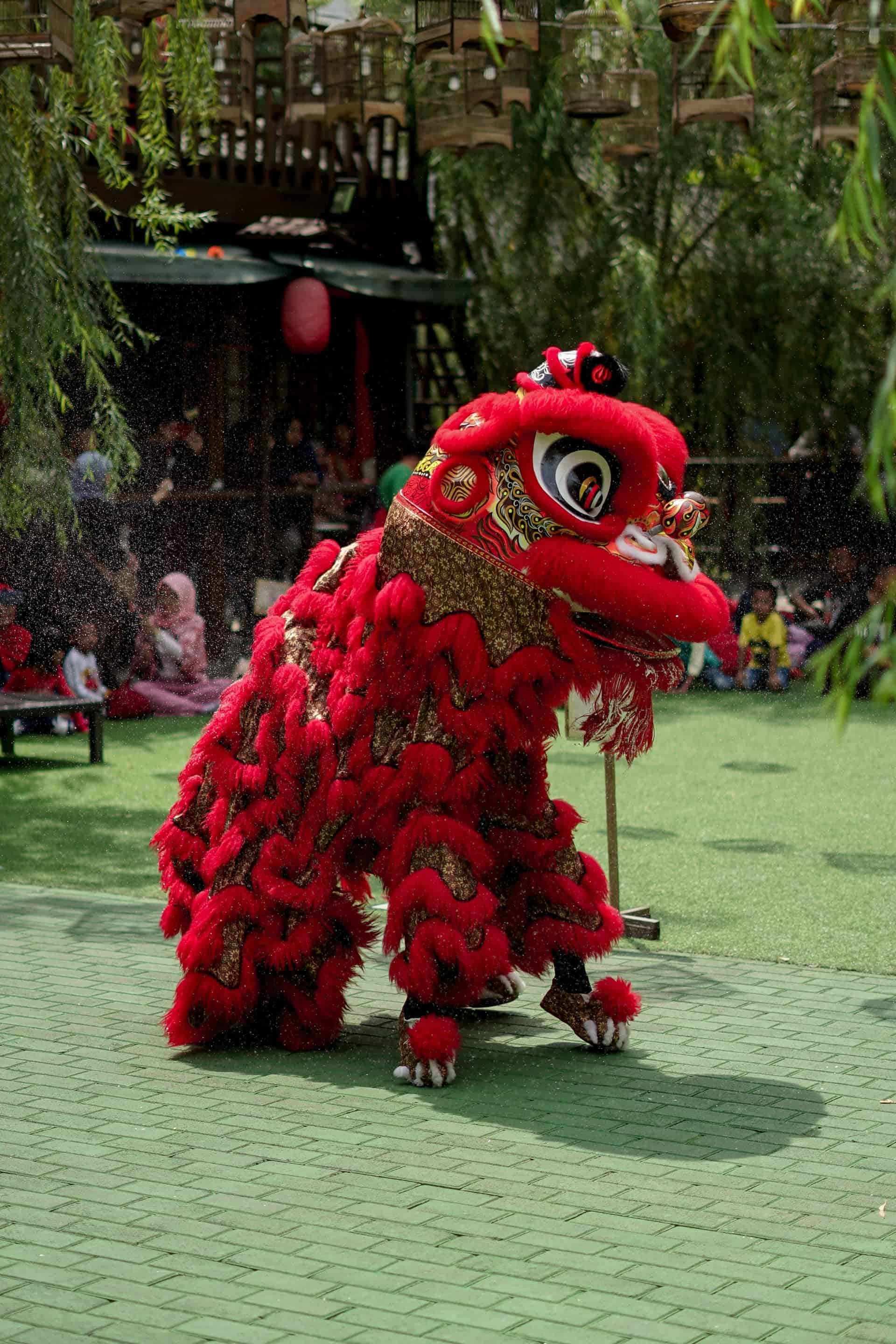
The origin of lion dance.
Photo by Fikri Rasyid on Unsplash
We all probably know, every Chinese New Year celebration must always have barongsai or lion dance. At temples, malls, even on the streets, lion dance are always there to enliven Chinese New Year celebrations. Lion-shaped doll with scaly body similar to dragon is usually played by two people. With dynamic and playful movements, the lion dance is indeed entertaining. But do you know why there are always lion dance during Chinese New Year?
Quoted from 5000 Tahun Ensiklopedia Tionghoa 1, by Christine Dkk, published by St Dominic Publishing in 2015, according to Chinese ancestral beliefs, every beginning of the new year is the time when the gods and goddesses returned to heaven to report to the Jade Emperor. So now the evil spirits in the world are becoming increasingly fierce because no one controls them when the gods and goddesses are in heaven. From this belief, the ancient Chinese then made a lion dance that had been blessed before at the temple with the purpose to cast out demons.

Photo by Visual Karsa on Unsplash
Another version mention that there is a legend that developed among ancient people. A strange creature named nien (same as nien which means new year) likes to attack humans, especially kids. It was said that Nien iss afraid of red color and loud sounds like firecrackers. It is said that Nien was afraid of the red color and loud sounds like firecrackers. That is why lion dance is always accompanied with lively music, it is to cast out niens.
However, there is one thing that is unique. the mention of barongsai actually only exists in Indonesia. The original name of this art in its home country is 'Wu Shi'. Whereas in Western countries call it lion dance. The name barongsai is a reflection of the acculturation of Chinese culture in Indonesia. The word Barong comes from Balinese puppets played by humans in it. While the word Sai in Hokkian means lion.












